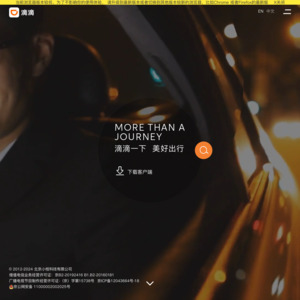Saw this deal in an Instagram ad - apparently DiDi is a new rideshare platform launching in Auckland on November 2nd, and has an offer for 50% off all rides for the first month for those who sign up before they launch.
To redeem the offer you need to download the app and sign up for an account. When I signed up I got a notification that the offer had been applied and I can see it in the promotions tab in the app.
Not sure how good they'll be or if they'll be cheaper than Uber or Ola, but such a good deal it's worth trying them out!



DiDi is what they use in China